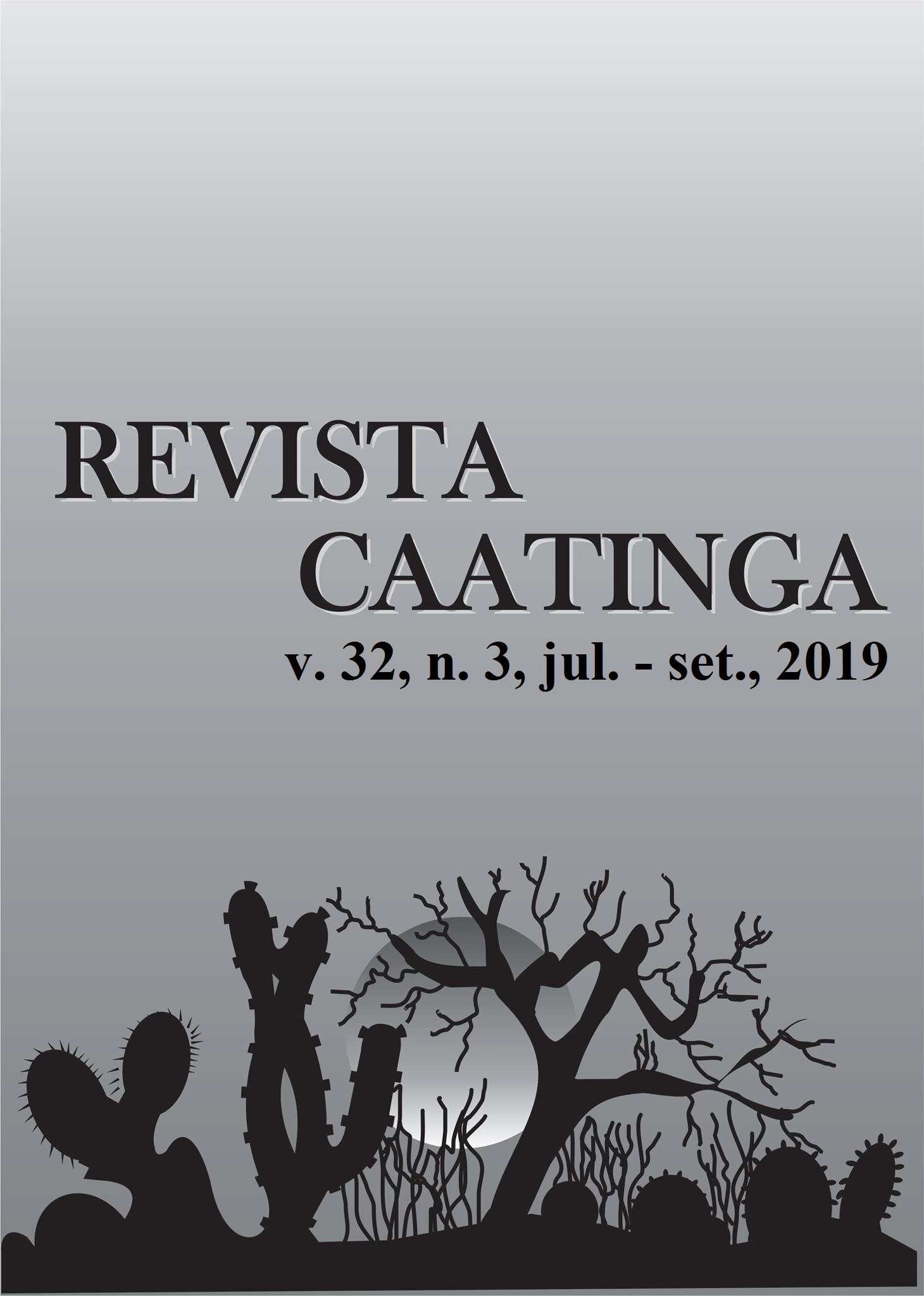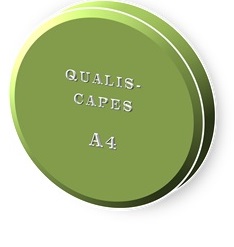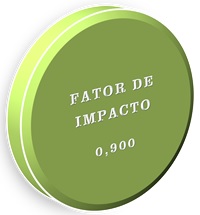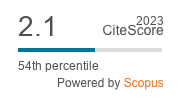INITIAL DEVELOPMENT AND TOLERANCE OF PEPPER SPECIES TO SALINITY STRESS
DOI:
https://doi.org/10.1590/1983-21252019v32n327rcKeywords:
Solanaceae. Capsicum sp. Abiotic stress. Irrigation.Abstract
Salinity is one of the main causes of crop yield decline in arid and semi-arid regions, requiring the use of tolerant species that allow cultivation in these areas. The objective of this study was to determine the emergence, initial growth and tolerance of pepper species irrigated with saline waters. The experiment was conducted in a protected environment (greenhouse), with a 5 x 3 factorial scheme, using four replicates of 30 seeds each. The experimental design was a completely randomized design, involving five irrigation water salinity levels (0.6, 1.2, 1.8, 2.4 and 3.0 dS m-1) and three species of pepper [E1 – Capsicum annuum (“Doce Comprida”); E2 – Capsicum frutescens (“Malagueta”); E3 – Capsicum chinense (“De Bico”)]. Pepper seedlings were grown in trays of 30 cells with a capacity of 0.1 dm3 of substrate. During the first 30 days after sowing, seedlings were monitored for emergence, initial growth and dry matter accumulation. As the salinity of the irrigation water increased, there was a reduction in the emergence, growth and phytomass accumulation of C. annuum, C. frutescens and C. chinense peppers. These species tolerate saline waters of up to 1.78, 2.71 and 1.55 dS m-1 respectively, in the initial development phase, with C. frutescens being the most tolerant to saline stress, and C. chinense the most sensitive.
Downloads
Downloads
Published
Issue
Section
License
Os Autores que publicam na Revista Caatinga concordam com os seguintes termos:
a) Os Autores mantêm os direitos autorais e concedem à revista o direito de primeira publicação, com o trabalho simultaneamente licenciado sob a Licença Creative Commons do tipo atribuição CC-BY, para todo o conteúdo do periódico, exceto onde estiver identificado, que permite o compartilhamento do trabalho com reconhecimento da autoria e publicação inicial nesta revista, sem fins comerciais.
b) Os Autores têm autorização para distribuição não-exclusiva da versão do trabalho publicada nesta revista (ex.: publicar em repositório institucional ou como capítulo de livro), com reconhecimento de autoria e publicação inicial nesta revista.
c) Os Autores têm permissão e são estimulados a publicar e distribuir seu trabalho online (ex.: em repositórios institucionais ou na sua página pessoal) a qualquer ponto antes ou durante o processo editorial, já que isso pode gerar alterações produtivas, bem como aumentar o impacto e a citação do trabalho publicado (Veja O Efeito do Acesso Livre).







